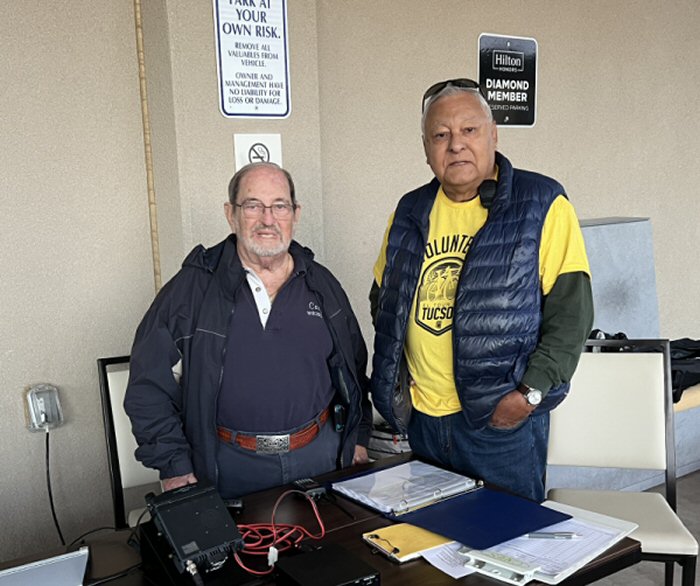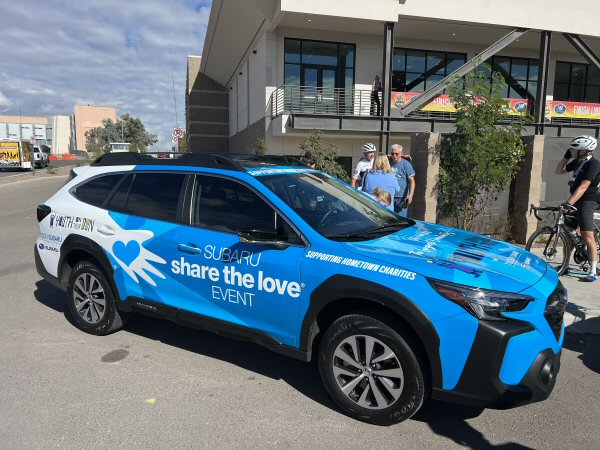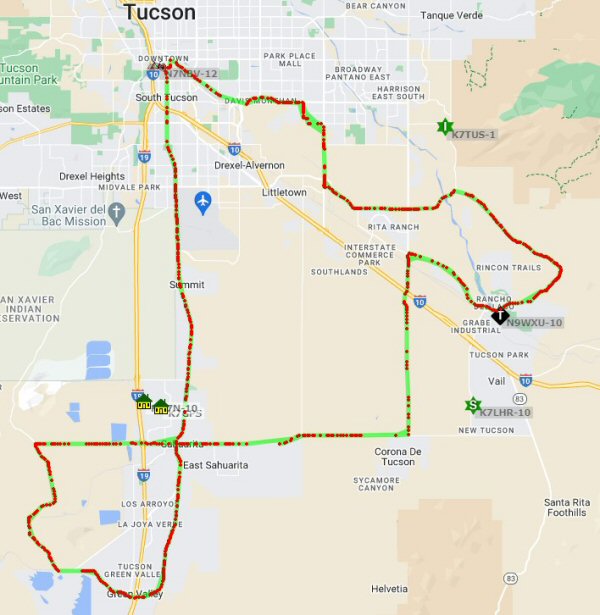The 40th El Tour de Tucson was held on Saturday, November 18, 2023. This premier bicycling tour had about 10,000 cyclists entered. More than just a cycling event, El Tour de Tucson provides support for over 100 non-profits and charities. In fact, over $100 million has been raised for local, national, and international charities!
With such a large number of participants, and 102 miles on the route, you can imagine that good communications is a big part of making sure things go smoothly. And that is where Amateur Radio has helped by providing support in 39 years of the 40 year history of the El Tour de Tucson!

We had a chance to talk with Cary Fishman, WB2BSJ, the ham radio coordinator for the event, and also Andy Guerrero, KC7ZMX, the El Tour board member who is the liaison to the amateur radio community. (Left to right in the photo.)
Here are some of the things that we learned:
- Over 40 ham operators helped with the event
- Multiple clubs are represented by the ham operators, Radio Society of Tucson (RST), Eastern Arizona Amateur Radio Society (EAARS), Oro Valley Amateur Radio Club (OVARC), Green Valley, Albuquerque Amateur Radio Club (GVARC); Albuquerque Amateur Radio Club (AARC), and perhaps some we missed!
- Cary and Andy have been collaborating on the amateur radio support for the El Tour for over 10 years (Wow! and… thanks Cary and Andy!)
- The El Tour de Tucson is the largest amateur radio public service event in Tucson.
You might wonder what type of communications go on between the 14 aid stations and the control center (staffed by 911, County Sheriff, Tucson Police, El Tour de Tucson, and amateur radio personnel.) These are the types of traffic that we heard:
- Progress traffic, i.e. “First rider arrived at aid station 1.” “Last rider at aid station x.”
- Injury reports and coordination of required actions. Serious injuries are handled by first responders. Less serious injuries are attended to by aid station personnel and the control center is apprised and kept up to date.
- Equipment problems and decisions by riders to quit the race. Many times these situations require a “SAG” (Support and Gear) vehicle to be dispatched.
- Check-in/check-out of personnel on station.
- Other communication as needed by the aid stations and the control center.
Another part that amateur radio played was by providing an APRS tracking device that was placed in the lead car. The control center was able to track the progress of the lead car from start to finish using this cool amateur radio technology.
In review, Cary sent this message to the ham operators by email: “I’m proud of all of you and of the way you kept things going smoothly, even with periods of rain. On behalf of myself and of Perimeter Bicycling Association I want to thank all of you for a job well done.”
If you would like to volunteer to help in a RST community service event, contact Cary Fishman, WB2BSJ.


Reported by Ken, N7NBV.